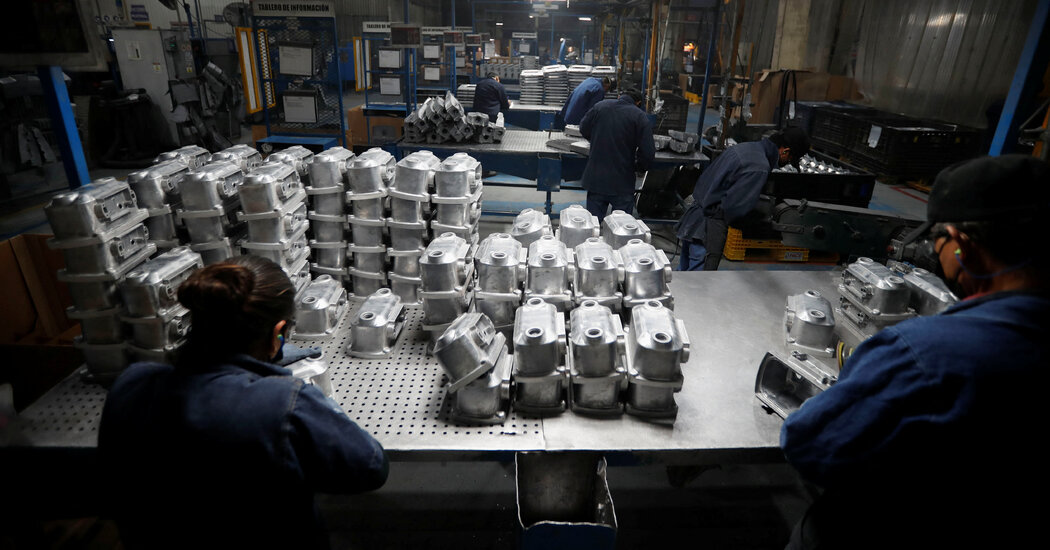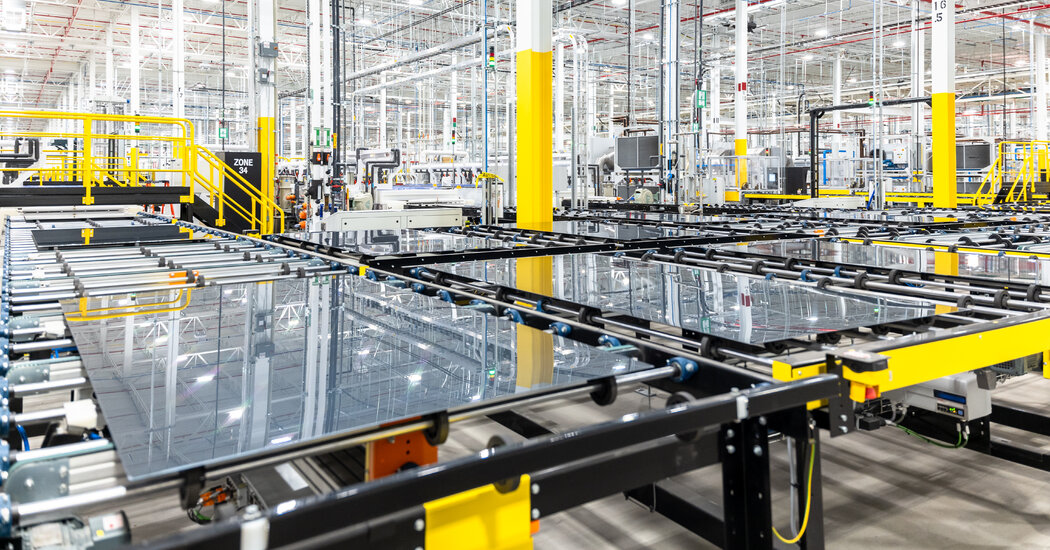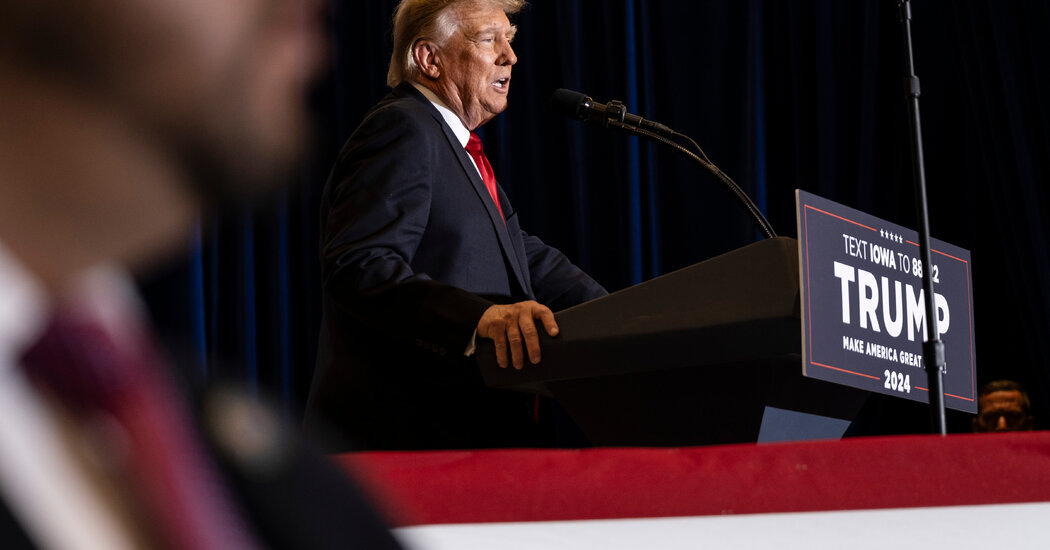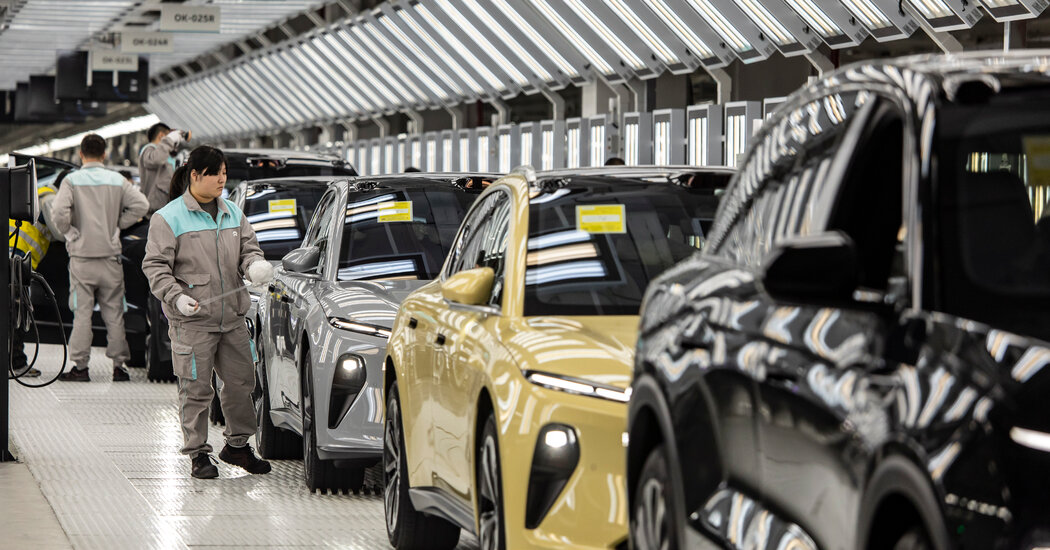In a sign of easing tensions between Australia and China, China said Thursday it will lift the tariffs it placed on Australian wine more than three years ago. The tariffs, which were first imposed in 2020 amid a nasty diplomatic spat between Australia and China, had all but vaporized the country’s biggest overseas market, worth 1.2 billion Australian dollars or around $800 million at its peak. Australian winemakers faced desperate hardship and were stuck with a surfeit of big-bodied red wines. The decision to lift the tariffs was announced by…
Tag: Customs (Tariff)
China’s Exports Surge Are Drawing a Global Backlash
China’s factory exports are powering ahead faster than almost anyone expected, putting jobs around the world in jeopardy and setting off a backlash that is gaining momentum. From steel and cars to consumer electronics and solar panels, Chinese factories are finding more overseas buyers for goods. The world’s appetite for its goods is welcomed by China, which is enduring a severe downturn in what had been the economy’s biggest driver of growth: building and outfitting apartments. But other countries are increasingly concerned that China’s rise is coming partly at their…
How China Came to Dominate the World in Solar Energy
China unleashed the full might of its solar energy industry last year. It installed more solar panels than the United States has in its history. It cut the wholesale price of panels it sells by nearly half. And its exports of fully assembled solar panels climbed 38 percent while its exports of key components almost doubled. Get ready for an even bigger display of China’s solar energy dominance. While the United States and Europe are trying to revive renewable energy production and help companies fend off bankruptcy, China is racing…
Biden Calls Chinese Electric Vehicles a Security Threat
President Biden took steps on Thursday toward blocking internet-connected Chinese cars and trucks from entry to the American auto market, including electric vehicles, saying they posed risks to national security because their operating systems could send sensitive information to Beijing. The immediate action was the opening of a Commerce Department investigation into security threats, which could lead to new regulations or restrictions on Chinese vehicles. But administration officials made clear it was the first step in what could be a wide range of policy responses meant to stop low-cost Chinese…
United States Spurns China for Mexico and Other Allies, Trade Data Shows
In the depths of the pandemic, as global supply chains buckled and the cost of shipping a container to China soared nearly twentyfold, Marco Villarreal spied an opportunity. In 2021, Mr. Villarreal resigned as Caterpillar’s director general in Mexico and began nurturing ties with companies looking to shift manufacturing from China to Mexico. He found a client in Hisun, a Chinese producer of all-terrain vehicles, which hired Mr. Villarreal to establish a $152 million manufacturing site in Saltillo, an industrial hub in northern Mexico. Mr. Villarreal said foreign companies, particularly…
Trump’s Tariffs Hurt U.S. Jobs but Swayed American Voters, Study Says
The sweeping tariffs that former President Donald J. Trump imposed on China and other American trading partners were simultaneously a political success and an economic failure, a new study suggests. That’s because the levies won over voters for the Republican Party even though they did not bring back jobs. The nonpartisan working paper examines monthly data on U.S. employment by industry to find that the tariffs that Mr. Trump placed on foreign metals, washing machines and an array of goods from China starting in 2018 neither raised nor lowered the…
Flush With Investment, New U.S. Factories Face a Familiar Challenge
The Biden administration has begun pumping more than $2 trillion into U.S. factories and infrastructure, investing huge sums to try to strengthen American industry and fight climate change. But the effort is facing a familiar threat: a surge of low-priced products from China. That is drawing the attention of President Biden and his aides, who are considering new protectionist measures to make sure American industry can compete against Beijing. As U.S. factories spin up to produce electric vehicles, semiconductors and solar panels, China is flooding the market with similar goods,…
Trump’s 2025 Trade Agenda: A New Tax on Imports and a Split from China
Former President Donald J. Trump is planning an aggressive expansion of his first-term efforts to upend America’s trade policies if he returns to power in 2025 — including imposing a new tax on “most imported goods” that would risk alienating allies and igniting a global trade war. While the Biden administration has kept tariffs that Mr. Trump imposed on China, Mr. Trump would go far beyond that and try to wrench apart the world’s two largest economies, which exchanged some $758 billion in goods and services last year. Mr. Trump…
Lawmakers Call for Raising Tariffs and Severing Economic Ties With China
Bipartisan lawmakers on Tuesday called for severing more of America’s economic and financial ties with China, including revoking the low tariff rates that the United States granted Beijing after it joined the World Trade Organization more than two decades ago. The House Select Committee on the Chinese Communist Party released a wide-ranging set of recommendations for resetting America’s economic relationship with China. The report, which was signed by both House Democrats and Republicans, argued that China had carried out a “multidecade campaign of economic aggression” that had undercut American firms,…
U.S. Retailers Say an Old Trade Law Puts Them at a Disadvantage
American retailers have faced an existential crisis since e-commerce disrupted the industry’s traditional business models. But their latest threat, a group of retailers and policymakers say, is coming from a nearly century-old trade rule that has given their e-commerce rivals — many of them founded in China — an unfair advantage. The rule, known as de minimis, allows companies to ship packages worth less than $800 into the United States without paying duties and fees that Customs and Border Protection enforces. Nearly three million de minimis shipments enter the United…









